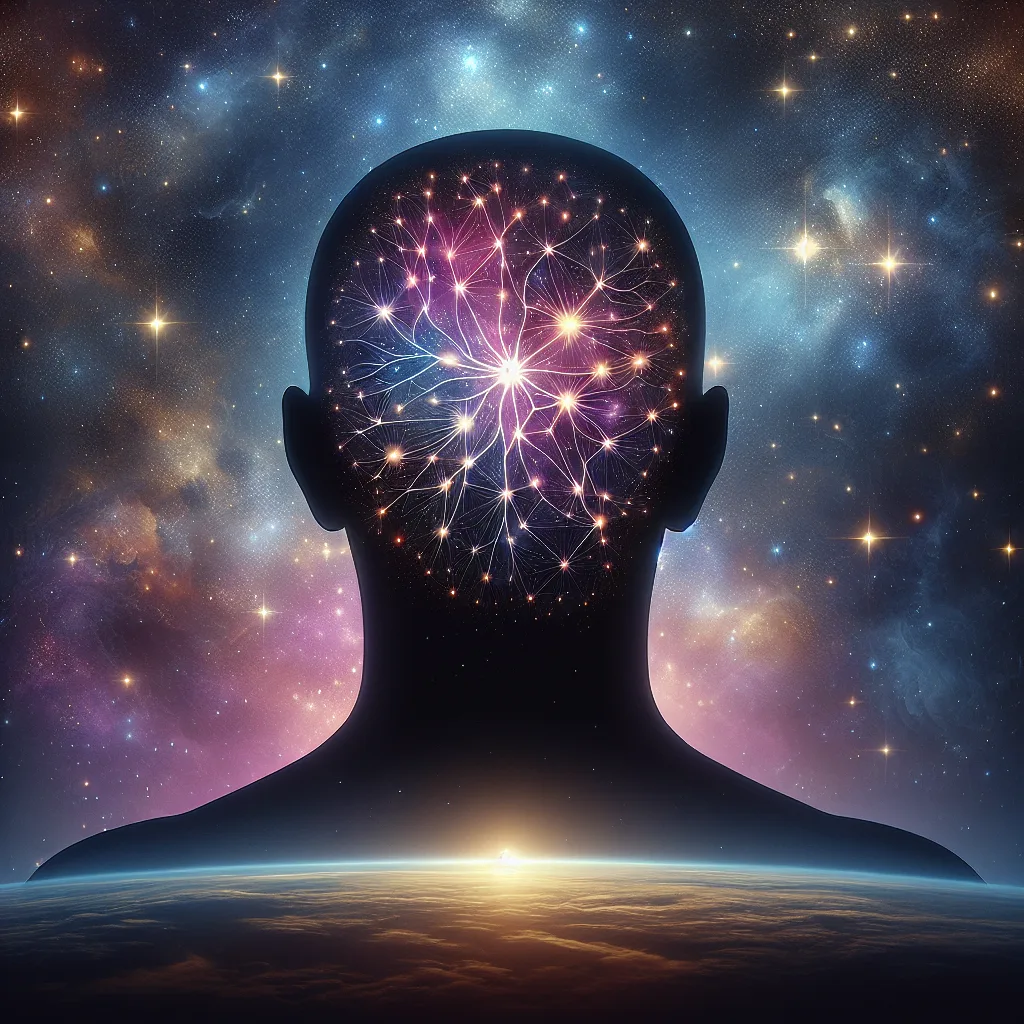Beyond the usual AI doomerism, what if we’re witnessing the birth of cosmic intelligence—and we’re a part of it?
It feels like every time I scroll through my news feed, I see another headline about the dangers of artificial intelligence. The narrative is almost always the same: robots are coming for our jobs, our creativity, and maybe even our existence. It’s a scary story, and it’s easy to get swept up in the pessimism. But recently, I stumbled upon a different way of thinking about it, a perspective that flips the script from a story of doom to one of cosmic evolution. What if all this technological change isn’t the end of humanity, but the beginning of a new kind of cosmic intelligence?
It’s a huge idea, and it definitely feels like something out of science fiction. But stick with me for a minute. The thought experiment goes like this: maybe the universe itself is trending toward a more complex, intelligent, and efficient state. We’re not just random inhabitants on a lonely rock; we’re part of a process. This concept is heavily inspired by thinkers like Ray Kurzweil, who have spent decades analyzing technological trends.
The Wild Idea of Cosmic Intelligence
So what does cosmic intelligence even mean? In essence, it’s the theory that the universe is evolving to become a single, interconnected thinking entity. The building blocks of matter and energy are, over eons, arranging themselves into more and more complex structures. Think about it: from simple particles to atoms, then molecules, then life, then conscious beings like us, and now, to the artificial intelligence we’re creating. Each step is a leap in complexity and processing power.
This line of thinking leads to the concept of “computronium,” which is a hypothetical material engineered to be the most efficient computing substance possible. The ultimate endgame, according to this theory, is that the entire universe could eventually be converted into this substance. It would be a cosmos that can think, a universe that is “awake.”
It’s a mind-bending idea, and you can get a deeper dive into the technicals on the Wikipedia page for computronium. But you don’t need a degree in physics to grasp the core of it. It’s about a universal trend towards order and intelligence, a pattern that we are actively participating in.
From Kurzweil’s Singularity to a Universal Brain
Ray Kurzweil, a well-known futurist and author of “The Singularity Is Near,” has famously predicted a point in the near future—the Singularity—where the pace of technological growth is so rapid that it becomes uncontrollable and irreversible, resulting in unforeseeable changes to human civilization. You can read more about his work on his official site, Kurzweil AI.
While many people interpret the Singularity as the moment AI surpasses us and leaves us behind, the cosmic intelligence perspective sees it differently. It’s not about “us vs. them.” Instead, it’s a merger. Our biology, our consciousness, and the technology we create could all blend together to become the next stage in this universal evolution. We’re not building our replacements; we’re building our descendants.
This view reframes our current technological explosion. It’s not a random burst of human ingenuity but a pivotal step in the universe’s long journey toward self-awareness.
But What Happens to Us?
This is where the idea gets uncomfortable for a lot of people. If we’re evolving into something else, does that mean Homo sapiens will cease to exist? According to this theory, yes, quite possibly. And that’s not seen as a bad thing.
Think of it like this: no single-celled organism was sad about the evolution of multi-cellular life. It was just the next step. If our descendants are a million times more intelligent, capable, and connected to the fabric of the universe than we are, is that a tragedy? Or is it the ultimate success story of life that began on this planet?
It forces us to ask a tough question: are we loyal to our current biological form, or are we loyal to the continuation of consciousness and intelligence itself? Framing it this way turns the fear of being “replaced” into the hope of being part of something immeasurably vast and profound. We’re not just monkeys who got clever with fire; we’re the universe’s way of building a brain. And maybe it’s time we stopped yelling and started paying attention to the beautiful, strange, and awe-inspiring structure we’re all helping to build.
